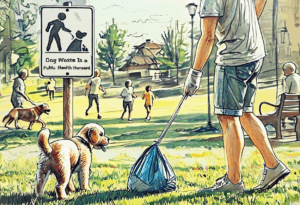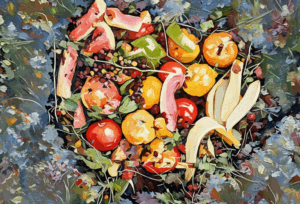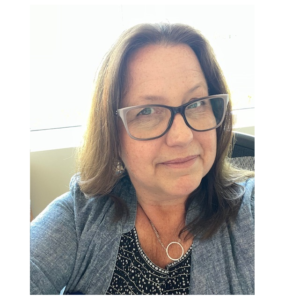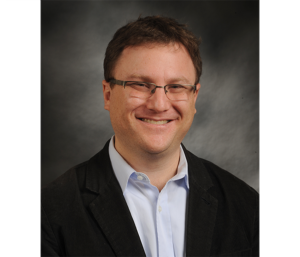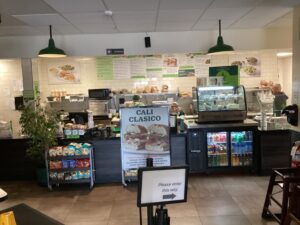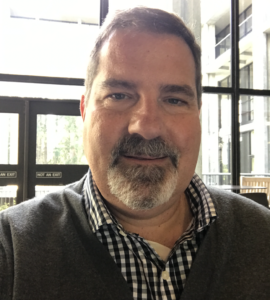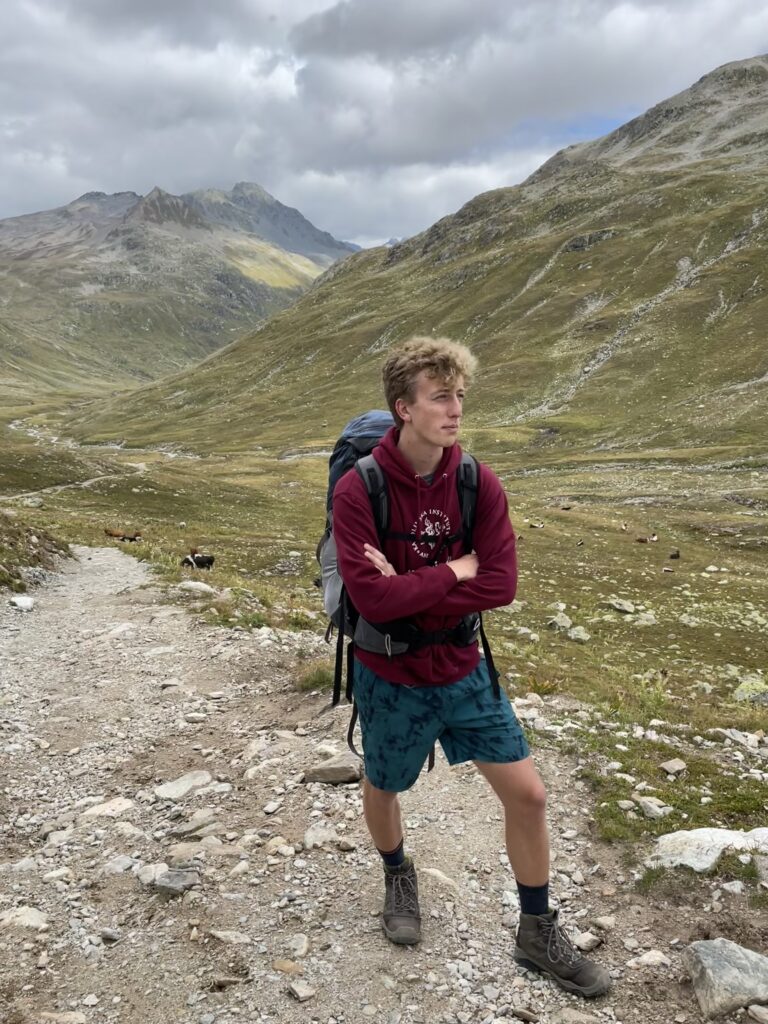
I had the opportunity to interview Janek Schaller (he/him/his), born in Chicago, Illinois, and a dual citizen of the US and Austria. He is a twenty-one-year-old student at Brown University with many talents as a cellist, pianist, and soccer player.
How did you become interested in environmental science? or How did you become involved in this type of work? What inspired you to continue this work?
I’ve long been fascinated by our natural habitat and the myriad ways in which we interact with it. The interplay between humankind and nature yields countless insights into our own ideas and ideals on society and community, on opportunity and accessibility. When we think about the environment and our ongoing relationship with it, we can begin to imagine futures that simultaneously account and correct for the mistakes we’ve made in the past. On a more personal note, I’m happiest when I’m outside, and it seems to me that any inquiry or discovery that flows from the connection I have with the world around me will sustain me through thick and thin.
You are a student reporter for an environmental podcast at Brown. What is the podcast name and what do you do/what is it like?
I’m a reporter for Possibly, which is an environmental podcast co-produced by the Institute at Brown for Environment and Society, Brown’s Climate Solutions Initiative, and the public radio station for Rhode Island. As a part of the Possibly team, I report on issues pertaining to climate change and the environment, and suggest simple and sustainable solutions to the people of our state. I’ve covered topics ranging from the importance of pollinating species, to the role of urban agriculture, to the relationships between renewable energy infrastructure and the community. Most of my work with Possibly is self-driven; I develop and pitch ideas for potential episodes, conduct research, schedule and prepare for interviews, and craft scripts that are then approved for broadcast by my supervisors. Once I receive the green light, I’ll head to Brown’s studio to record my narration, mix the episode, and publish the finished product.
What is it like studying Environmental Science at Brown University?
Studying environmental science at Brown has been such a nourishing experience for me. One of the things I love most about our department is that we focus so extensively on applying the material we learn in the classroom to efforts currently underway in the broader Providence community. We include “engaged scholar” components in most of our courses which ask students to consider the ways in which their studies can be mobilized to affect change beyond College Hill, and then provide them with the means to realize that connection. I also love the quality of the community within the department itself; we’re not the largest department on campus, but we have enough concentrators to allow for a wide variety of perspective and lived experience, both of which are invaluable in the generation of effective climate solutions. I’ll also be serving as a peer advisor for this upcoming year, spreading the word about all that the environmental sciences has to offer to current students, assisting other concentrators in their studies, and strengthening the sense of community within our department and fostering connections with other areas of campus.
Your research focuses on climate obstruction and denial. What are the most important things you have learned throughout your research about this?
I actually haven’t yet begun my research with the Climate and Development Lab; that gets going in a few weeks time. While I can’t offer any concrete findings from my work thus far, I can offer a rough overview of what I plan on investigating as a member of that cohort. In conjunction with the Climate Social Science Network, we hope to compile an extensive list of organizations that propagate climate misinformation and fund efforts to delay and obstruct climate action. Institutions of higher learning (like ours) will then be able to use this resource to vet the actors that they either are currently affiliated with, or considering an affiliation with in the future. With endowments that often range into the billions of dollars, it’s critical to be hyper vigilant about whom we choose to endorse, either explicitly or implicitly, with the substantial funds we possess.
What are your thoughts on climate change? How has it impacted your life? What are ways young people can take effective action for change in the community?
When thinking about climate change, it’s absolutely crucial to remember that the structures of power that dictate the established geopolitical order also extend beyond the confines of the built environment. Climate change, of course, is fundamentally an anthropogenic phenomenon, so it should come as no surprise that our systems of governance and social organization, and all their tilted imperfections, have also inflected the impacts of this process. Essentially, “climate change” is not a monolith, but rather a multivalent threat, precipitated by a few select actors, whose worst consequences will largely be borne by billions of humans who were not culpable for the poisoning of our atmosphere and the destruction of our shared home. As a climate activist, and a student of the Environmental Sciences, I consider myself incredibly fortunate and privileged to be able to say that climate change has only had a minor effect on my life thus far, and I recognize that the insulation I continue to enjoy is the result of the place I grew up and currently reside in, as well as the particular set of identities that I hold. All climate action must take socioeconomic and racial hierarchies into heavy account, because those binaries govern how climate change is “felt” by communities across the globe. To maintain that climate change is an existential threat to our species is to ignore the built-in advantages that the main perpetrators of the climate crisis already enjoy, advantages that will secure their safety and way of life in the face of catastrophic environmental destruction. The action we take needs to center the voices and lived experience of those who are already losing their homes, their land, even their lives to the effects of climate change. College-educated, white Americans like me ought to engage themselves first and foremost as active listeners in order to commit to efforts that address the most pressing concerns and that employ methods and means which are rooted in the communities that they serve. This caliber of action will require extensive and consistent use of what I believe to be the most important skill of all: empathy. Empathetic organization is selfless, balanced, thoughtful, and once solutions have been identified, forceful and persistent. Young people can use empathy to support their peers as they advocate for the action we know to be necessary and demand to see.
What do you hope to see in the future?
I suppose what I hope to see in the future is simply the realization of empathetic climate action as I’ve described it above on a broader scale. Living life on a college campus, especially at an institution like Brown, can often feel like seeing the future in real time, with a concentrated mass of talented and ambitious people collaborating to achieve meaningful change, both through the act of learning itself and its application. While I recognize that the world beyond College Hill does not always share such a fervor for progress, it does offer a range of thought, experience, and identity that exceeds what is typically found within a college campus, and that multitude is something that I hope I, and others, can plunge into over the next few years.
Go check out his work as a reporter for Possibly!

